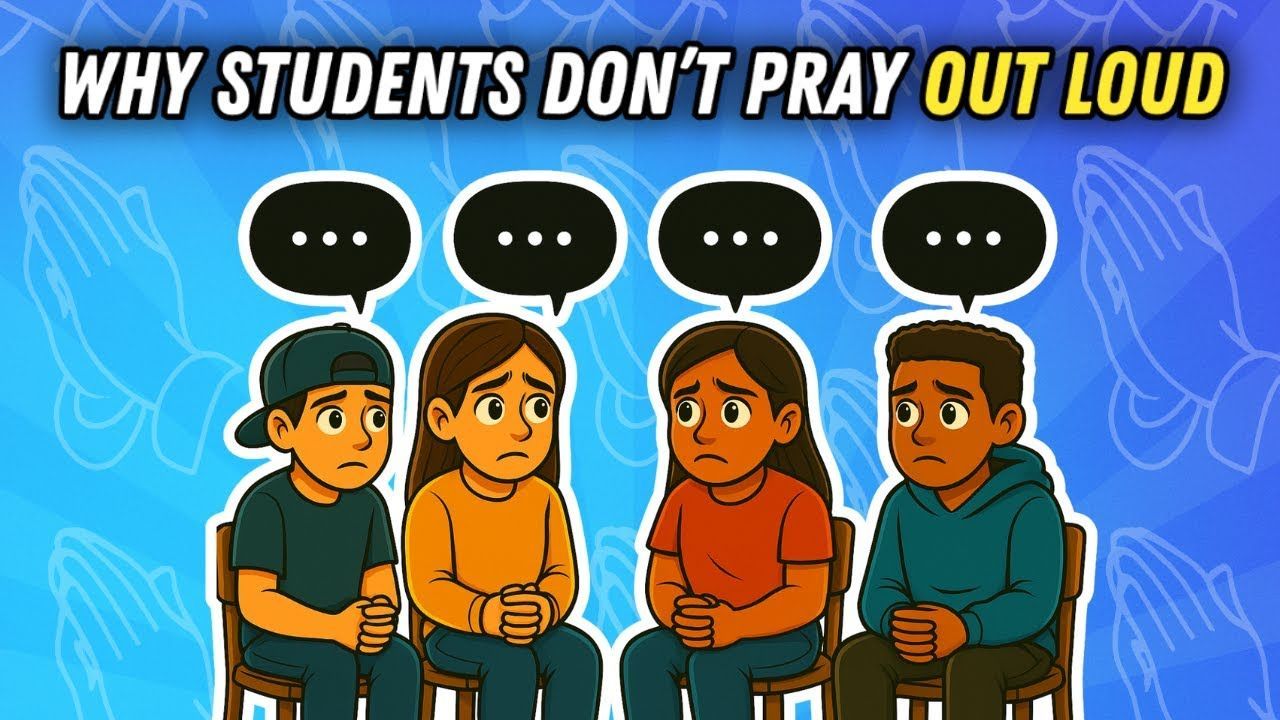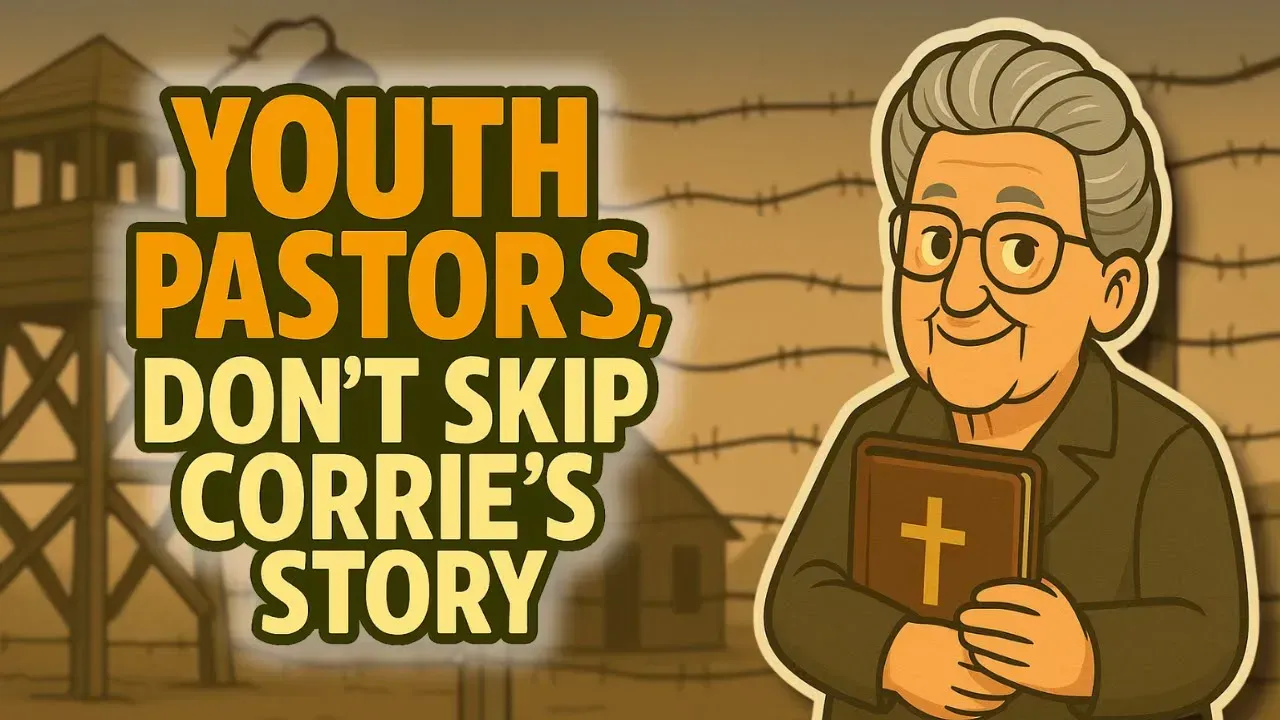How to Increase Bible Engagement in Your Youth Ministry | Beyond The Youth Room Podcast • Ep 70
Boosting Bible Engagement in your Youth Group
Check out the podcast
here!
Want to see real transformation in the lives of your teens? Ryne and Keith from the Beyond the Youth podcast highlight a key factor: Bible engagement. They point to compelling statistics: while Bible sales are up 22% this year, fueled by first-time buyers, only 37% of Christian Gen Z teens have read the Bible outside of church or youth group in the past week. This disconnect presents a real opportunity for youth leaders.
Ryne and Keith emphasize that a foundation of valuing God's Word is essential in any youth ministry. But beyond that, what practical steps can you take to encourage teens to engage with Scripture? They share a powerful strategy they've implemented: giving Bibles to new students and new believers.
This practice, started in October 2024, has become a core part of their ministry's outreach. Initially, they gave Bibles to students who made a first-time profession of faith. However, they soon realized that many first-time visitors also lacked a Bible. So, they began offering Bibles to all first-time attendees, asking if they have a Bible at home that they like. This simple question often reveals that while a teen might own a Bible, it may be an older translation or one they find difficult to understand.
Giving Bibles to first-timers has several benefits. It demonstrates the importance of Scripture to the entire group. It also creates a connection between the Bible and the youth group. Teens who receive a Bible at the ministry are more likely to bring it back than those who received one from their parents. This sense of ownership and connection can be a powerful motivator for engagement.
Ryne and Keith continue their discussion on increasing Bible engagement in youth groups, moving beyond simply providing Bibles. They emphasize the importance of training teens to use and understand Scripture for themselves.
While Ryne acknowledges the appeal of simpler translations like the NLT, he maintains that some level of complexity encourages deeper study. He clarifies that The Message is a paraphrase, not a translation. The discussion then turns to the practicalities of providing Bibles. Ryne mentions using ESV Bibles, including the Teen Study Bible, and purchasing them from Amazon or christianbook.com. He notes the significant financial commitment involved but highlights the incredible support they’ve received, including a successful fundraising auction where a seven-layer dip sold for a staggering $1,800!
The second key strategy is requiring students to use physical Bibles during youth group. While acknowledging that some might use devices, Ryne emphasizes the importance of interacting with a physical copy. He explains that during lessons, only the reference is displayed on the screen, encouraging teens to locate and engage with the passage themselves. This practice not only familiarizes them with the Bible’s layout but also creates opportunities for peer mentorship as more experienced students can help others find specific books and verses. Small group questions also incorporate scripture, ensuring that the Bible is central to all discussions. Ryne also mentions using the inductive Bible study method (observation, interpretation, and application) in small group questions to reinforce this practice.
Third, Ryne stresses the importance of encouraging scripture memorization. He shares examples of how students in his group chat actively memorize verses and how the youth room displays a verse of the week. He notes the positive impact of memorization, giving teens confidence and sparking further exploration of Scripture. He suggests pairing students up during small group to recite verses to each other as a simple way to incorporate memorization. He also discusses the potential for focused scripture memorization during retreats or camps, perhaps focusing on a theme passage like Psalm 46:10 for a "be still" themed camp.
Fourth, the focus shifts to training students in how to study scripture. Ryne emphasizes the goal of creating a training ground, not just a feeding ground. He describes “guided reading series” where students work through passages in small groups, answering questions and exploring related articles. He mentions using this approach with books like 1 John and major passages like Romans 8. This method provides practical experience and builds confidence in personal Bible study. He also mentions the creation of devotional booklets for students after camp, designed to maintain spiritual momentum by guiding them through a book of the Bible or a specific theme like the parables of Jesus, using the inductive Bible study method.
Finally, Ryne introduces the fifth point: training students in the importance and reliability of Scripture. He mentions Wes Huff as someone known for this. The post ends here, leaving the reader anticipating the next point in their strategy for increasing Bible engagement.
Ryne and Keith conclude their discussion on increasing Bible engagement in youth groups by focusing on the importance of demonstrating the reliability of Scripture and guiding teens toward consistent Bible reading habits.
They highlight the work of Wes Huff, who has gained recognition for his engaging presentations on the trustworthiness of the Bible, even appearing on popular podcasts. Ryne emphasizes the importance of helping teens understand that the Bible is not simply a "game of telephone," but a collection of texts with original manuscripts in Greek and Hebrew. He shares an anecdote about a conversation with an atheist parent who had misconceptions about the Bible's transmission, illustrating how a solid understanding of textual criticism can equip teens (and adults) to defend their faith. He also uses the example of the feeding of the 5,000 to illustrate how seemingly minor discrepancies between gospel accounts actually provide evidence of their authenticity. By understanding these nuances, teens can develop a deeper confidence in the Bible as the inerrant Word of God.
The conversation then shifts to the topic of Bible reading plans. While Ryne's church doesn't currently use a church-wide plan, he emphasizes the importance of training teens to find and utilize a plan that suits them. He avoids simply recommending a specific plan, instead focusing on equipping teens with the skills to choose one and stick to it. He acknowledges the common problem of "Bible roulette" – randomly opening the Bible and reading – and aims to provide teens with a more structured approach. He mentions their new believer workbook as a resource that guides new Christians through specific passages and addresses common questions.
Keith shares a different approach, explaining that his church uses a whole-church Bible reading plan, which often forms the basis for sermon series. He mentions past plans like the Robert Murray M'Cheyne plan and their current use of the Bible Project's reading plan. However, he also acknowledges the challenges of such plans, particularly the potential for teens to fall behind and feel overwhelmed. He notes the value of shared reading experiences and accountability within a church community.
Ultimately, Ryne and Keith encourage youth leaders to share their own successful strategies for increasing Bible engagement and to continue seeking ways to effectively shepherd the next generation. They express excitement for what God is doing among young people and emphasize the importance of faithful leadership.











